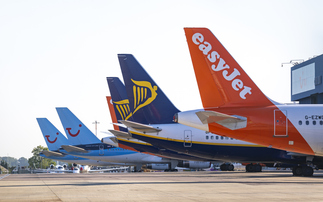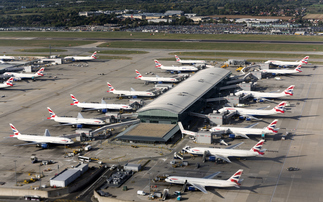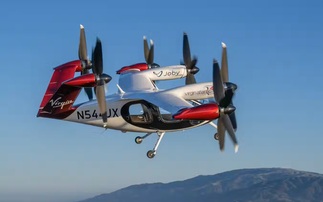As environmental groups label new aviation carbon standard "ineffective", pressure on the industry to decarbonise looks set to intensify
Last year's Paris Agreement was so much more ambitious than expected that the vast majority of green businesses and campaigners united in hailing its historic significance. But the near universal praise for the deal did not mean it was without flaws - far from it.
Today the UN attempted to address one of those flaws with the International Civil Aviation Organisation (ICAO) announcement that its Committee on Aviation Environmental Protection (CAEP) has backed plans for a mandatory carbon standard for new aircraft to be phased in from 2020.
One of the biggest weaknesses of the Paris Agreement was the axing of a reference to the need to tackle emissions from aviation and shipping. The EU had wanted a specific commitment to deal with the twin industries' fast-expanding carbon footprint, but according to sources the reference was killed early in the negotiating process by the same "usual suspects" who tried to kill the EU's extension of its emissions trading scheme to aviation - i.e. the US, China and several Gulf States.
Opponents of aviation and shipping's inclusion in the Paris text argued it was unnecessary as the ICAO and the International Maritime Organisation (IMO) were already working on their own climate policies. The ICAO's announcement today suggests they may have had a point.
The aviation industry was quick to herald today's news as an important step in the right direction - one that will be followed later this year by a major meeting on how to introduce a market-based mechanism to tackle aviation emissions.
However, it remains far too early to tell if the promised carbon standard really marks a turning point in the ICAO's thus far under-powered approach to climate issues. There are plenty of justifiable reasons for green groups to remain concerned about aviation's fast-expanding climate impact.
Firstly, the standard still has to be adopted. Secondly, as the respected Transport and Environment (T&E) group noted today the proposed standard is pretty weak. By phasing it in between 2020 and 2028, policymakers have kept the door open for some relatively inefficient aircraft to remain in production for well over a decade. "Variants of in-production aircraft (Airbus Neo and Boeing MAX) now coming on the market will dominate deliveries for the next generation and easily comply with a higher stringency than that now set for such aircraft by ICAO," T&E noted. "The standard could have accelerated the closure of production lines of the older versions of these types (A320s, A330s, Boeing 737CEOs) but ICAO added a built-in escape to keep these old and 15-20 per cent less fuel-efficient aircraft in production up until 2028."
Thirdly, the standard alone is highly unlikely to deliver on the industry's stated goal of delivering an average of 1.5 per cent a year up to 2020, stabilising CO2 emissions by 2020, and halving CO2 emissions by 2050 compared with a 2005 baseline. There are some bright green spots in the aviation industry - jet biofuel trials are making progress, fuel efficiency does keep improving year-on-year as airlines respond to cost pressures, companies such as easyJet are pioneering clean technologies in a bid to slash emissions further. But as a study noted last year, the industry is currently 12 years behind on its 2020 goal and there is little hope of the gap being closed.
Environmental campaigners, policymakers, and a growing number of airlines know more ambitious policies need to be introduced by the ICAO, ideally as early as this autumn. However, without a change of heart from the 'usual suspects' any new policies are likely to be watered down and fall short of the level of ambition required if the aviation industry is to contribute fully to meeting the climate goals agreed in Paris.
The Paris Agreement was an historic success, but without significant further progress from the ICAO this year it could still be left with a jumbo jet-sized hole where a credible plan for delivering a low carbon aviation industry should have sat.
This article is part of BusinessGreen's Road to Paris hub, hosted in association with PwC.










